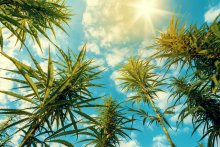
19 Aug Comments to the Food & Drug Administration on CBD and Cannabis
Project CBD is a California-based educational nonprofit that reports on developments in cannabis science and therapeutics. Founded in 2010, Project CBD was instrumental in introducing cannabidiol (CBD) to the medical cannabis community in California. Interest in CBD spread from that community to become the hugely popular cultural phenomenon that it is today.
Subject to little manufacturing oversight, the unregulated CBD market thrives in a peculiar legal environment. The CBD molecule is currently both legal and illegal, depending on its botanical source. The 2018 Farm Bill explicitly removed hemp and its derivatives, including CBD, from the list of Controlled Substances and the purview of the Drug Enforcement Administration (DEA). Consequently, it became the Food and Drug Administration’s job to regulate CBD commerce.
But CBD oil derived from cannabis with over 0.3 percent tetrahydrocannabinol (THC) remains a controlled Schedule I substance under federal law and is, therefore, still subject to DEA enforcement. To complicate matters even further, single-molecule CBD is also an FDA-approved Schedule V pharmaceutical (Epidiolex). CBD’s simultaneous status as the most and least restricted class of drug is emblematic of the contradictions within cannabis policy.
Legal ambiguities aside, public enthusiasm for CBD and cannabis is driving a multibillion-dollar “green rush.”1 Over 64 million Americans have reportedly used a CBD product,2 many of them for conditions that were unresponsive to conventional therapies. Although the FDA has the authority to crack down on non- pharmaceutical CBD products, thus far it has utilized this authority only sparingly. The limited FDA enforcement policy is in part a reflection of the growing economic and political clout of the cannabis sector. The FDA can’t scale with the magnitude of this cultural groundswell. It can’t put the CBD genie back in the bottle even if it wanted to.
Several factors have aligned in favor of the present-day cannabis surge. It comes at a time of widespread disaffection with a broken, overpriced health care system.3 Although the mainstream embrace of CBD has all the signs of a fad, it’s also driven by a hunger for alternatives to harsh pharmaceuticals, a sincere desire for medicine more in synch with natural processes.4 For some who are struggling with serious illness, artisanal cannabis oil is a last-ditch Hail Mary pass. For many others, it is a tonic for coping with endemic despair in a country where substance abuse, depression, and suicide rates are at an all-time high.


Sorry, the comment form is closed at this time.